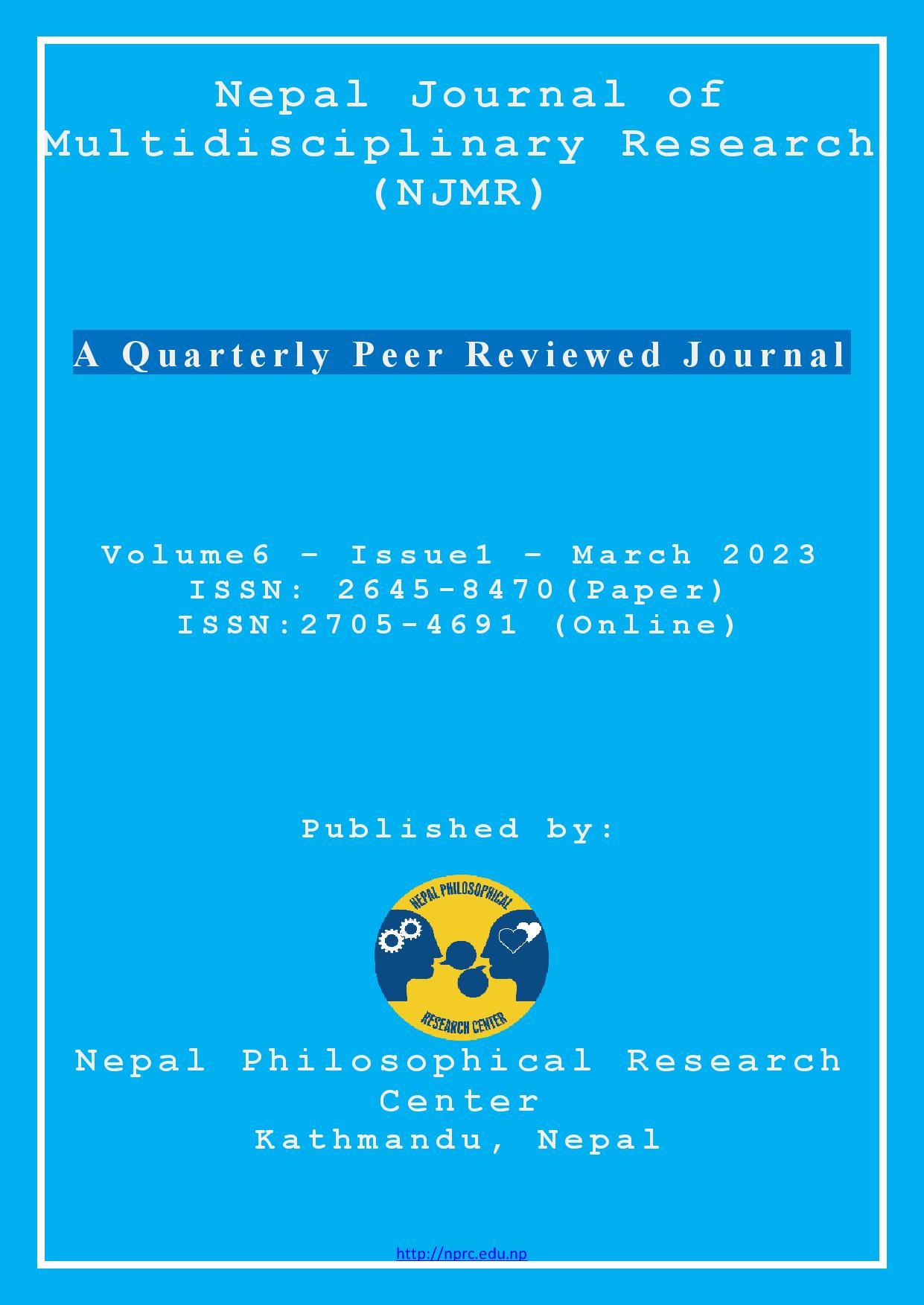Collaborating Effect of Employees’ Interpersonal Influence Skills and Perceived Workplace Politics on Turnover Intention
DOI:
https://doi.org/10.3126/njmr.v6i1.54286Keywords:
Interpersonal influence, workplace politics, turnover intention, interactive effectAbstract
In the literature, there are contradicting findings regarding the impact of perceived workplace politics on employees’ outcomes. In this context, this study was carried out to measure the direct and interactive (with interpersonal influence skills) effect of perceived workplace politics on turnover intention. Moreover, this study was dedicated to measuring the remedial role of interpersonal influence skills under the different situations of perceived workplace politics. Applying a survey strategy, 725 responses were collected from the Grade A Nepalese bank employees. Perceptual cross-sectional data were analyzed in SPSS by adopting positivist research philosophy and deductive reasoning approach. This study revealed that employees’ perceived workplace politics positively impact their turnover intention. Likewise, interpersonal influence skills moderated the relationship between the perception of workplace politics and turnover intention. Employees’ interpersonal influence skills worked as an antidote for the detrimental effect of perceived workplace politics on turnover intention. The antidotal power was measured differently under different conditions (high, medium, and low) of workplace politics. For example, the strength of the mitigation power of interpersonal influence skill is strong when perceived workplace politics is high, but the mitigating power is weak when the perception of workplace politics is low.
Downloads
Downloads
Published
How to Cite
Issue
Section
License
Copyright (c) 2023 Ganesh Bhattarai

This work is licensed under a Creative Commons Attribution-NonCommercial 4.0 International License.
This license enables reusers to distribute, remix, adapt, and build upon the material in any medium or format for noncommercial purposes only, and only so long as attribution is given to the creator.




